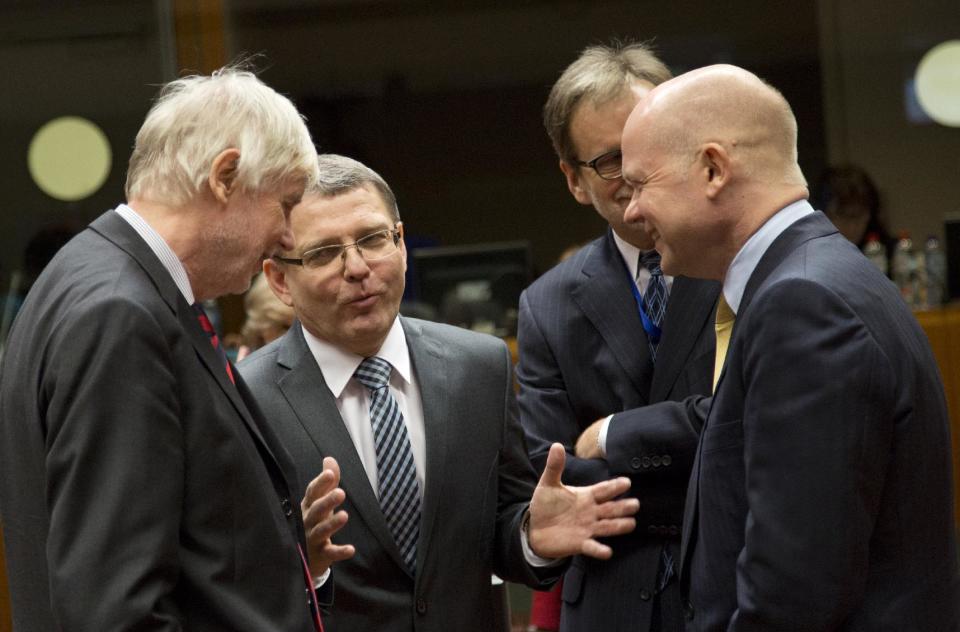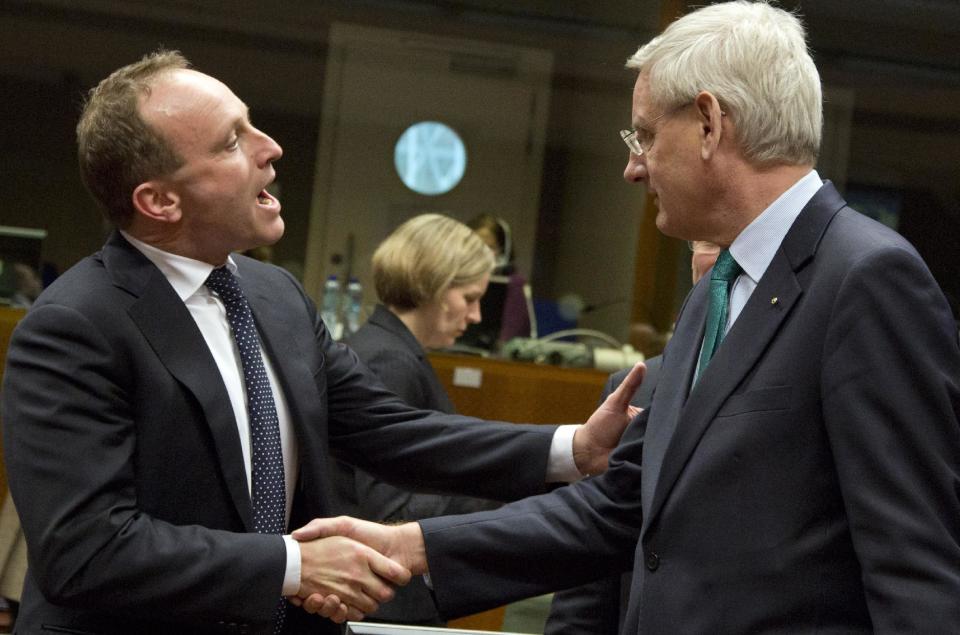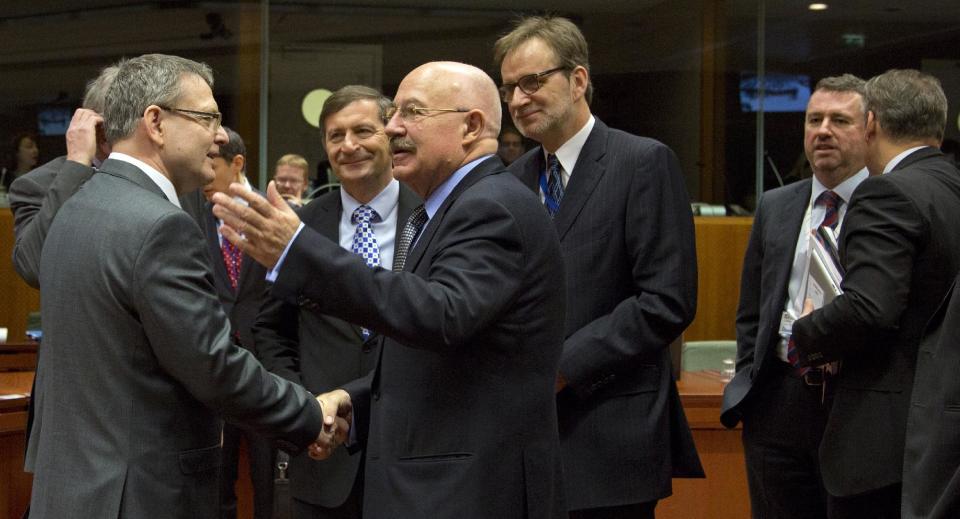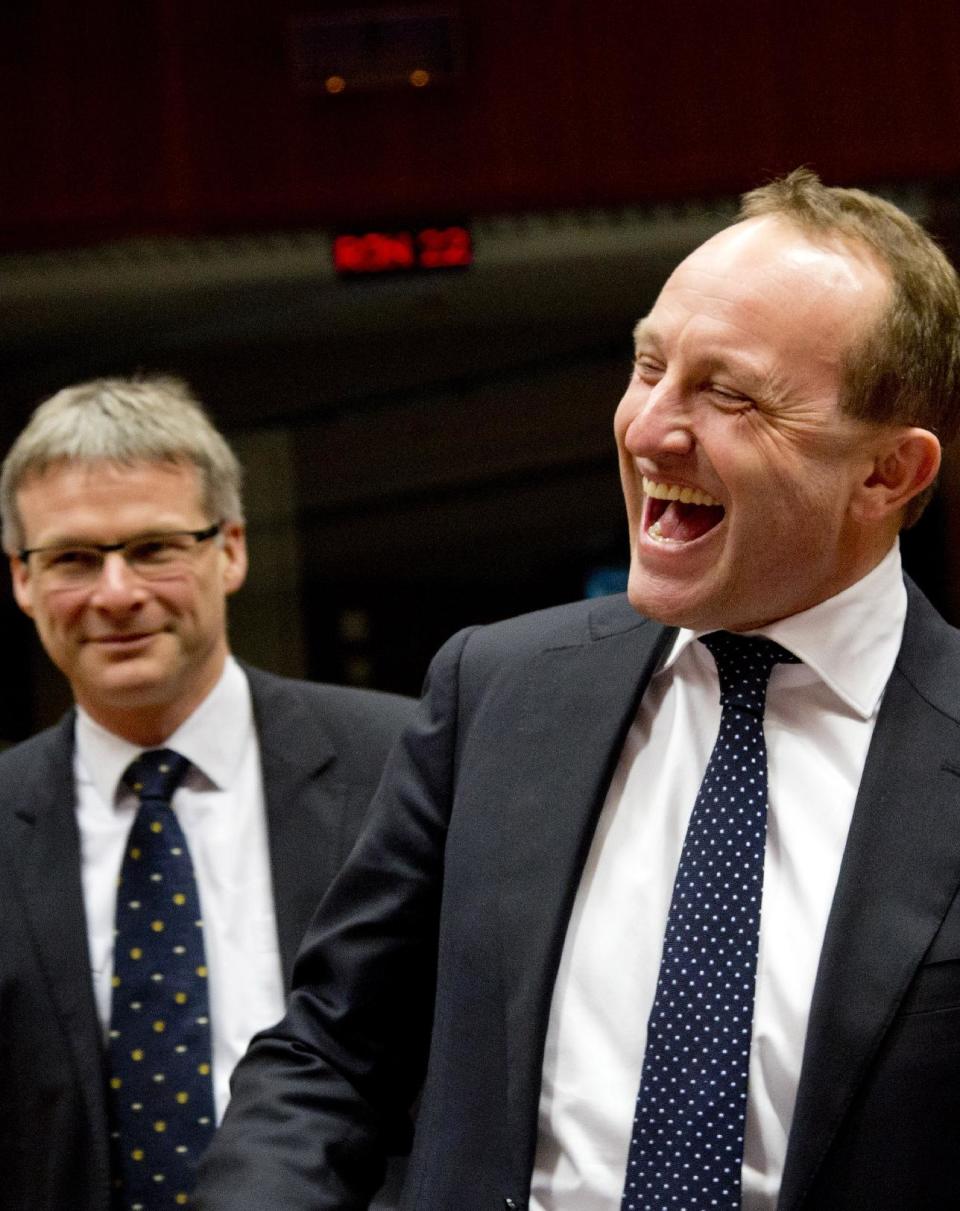EU urges new government, elections in Ukraine
BRUSSELS (AP) — In a sharp rebuke to Ukrainian President Viktor Yanukovych, the European Union on Monday called for the formation of a new, inclusive government and constitutional reforms that would pave the way to "free and fair presidential elections."
The bloc's 28 foreign ministers said in a joint statement they were "alarmed by the human rights situation, including violence, cases of missing persons, torture and intimidation" as part of the authorities' crackdown against the ongoing protests, reflecting an "atmosphere of impunity."
Ukraine has been rocked by nearly three months of anti-government protests sparked by Yanukovych's refusal to sign an agreement with the EU and accept a $15 billion loan package from Russia instead. The political deadlock is also pushing Ukraine's economy closer to the brink; its currency and foreign reserves are tumbling while Moscow has suspended its loan payments.
The ministers at their meeting in Brussels reiterated the EU stands ready to assist Ukraine financially, provided a new, inclusive government will be formed to "pursue economic and political reforms."
The EU has so far shied away from imposing sanctions such as travel bans or asset freezes against the Ukrainian leadership, but the foreign ministers' demand for constitutional reform and fresh elections on Monday reflected the bloc's growing impatience.
"A new and inclusive government, constitutional reform bringing back more balance of powers, and preparation for free and fair presidential elections would contribute to bringing Ukraine back on a sustainable path of reforms," they said.
Separately, the foreign ministers decided to start negotiations with Cuba to upgrade the EU's ties with the Caribbean island nation. The EU's foreign policy chief, however, cautioned that progress will depend on Cuba's determination to implement further reforms toward opening its economy and respecting fundamental rights.
The Cuban government later issued a statement attributed to Deputy Foreign Minister Rogelio Sierra Diaz saying dialogue with the EU should be "based on a reciprocal, unconditional and non-discriminatory approach."
The EU resumed low-level contacts with Cuba in 2008, two years after Raul Castro became president and started granting Cubans some more freedom. European nations have long traded with Cuba and thousands of Europeans flock to the island's beaches every year.
___
Follow Juergen Baetz on Twitter at http://www.twitter.com/jbaetz








